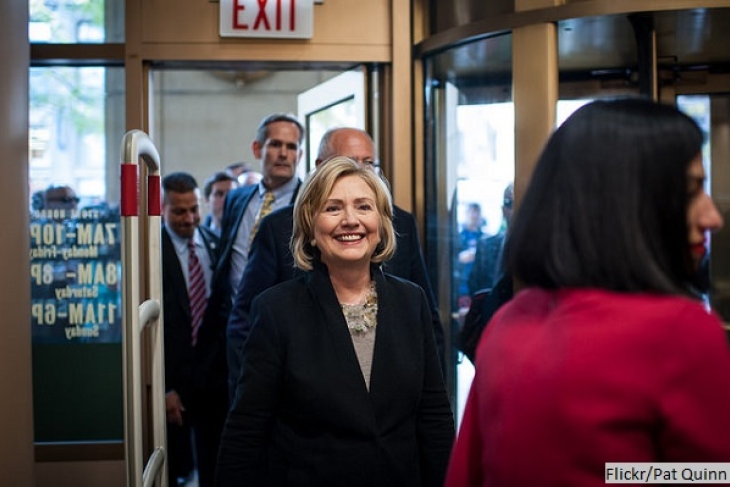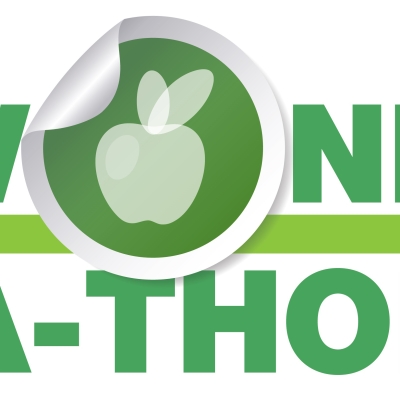The Democratic primary contest between Hillary Clinton and Bernie Sanders has been a fractious one, dividing party loyalists on issues like health care, foreign intervention, financial reform, and corporate influence on politics. Curiously, education hasn’t surfaced as a subject of dispute—until this week, when a few education voices on the Left mistakenly harangued Clinton for going soft on her commitment to testing. Though well-intentioned, these commentators need to cool their jets and take a closer look at her record.
It’s appropriate that this kerfuffle would start now that both candidates have alighted in New York, a bulwark of union strength and bare-fanged hostility to Common Core (some 20 percent of eligible students were opted out of last year’s round of standardized testing). The crux of it is this: Some left-leaning reformers have seized on a few ill-advised comments by Bill Clinton as proof that his wife is selling out school accountability. Liberal tribune Jonathan Chait (or at least his headline writers) accused her of “abandoning education reform”; Shavar Jeffries, president of Democrats for Education Reform, wrote that the former president’s remarks would redound “to the detriment of our students, particularly poor and minority children, children of recent immigrants, and students with disabilities.”
So what’s going on here? At a campaign event last week in Cheyenne, Hillary’s most mischievous surrogate claimed that she thought federal testing requirements “are just too much…it’s national overreach, and the most it could ever do is to help people at the very bottom levels of achievement.” Although he went on to clarify that his wife’s position didn’t totally preclude the use of assessments, he added that ESSA’s requirement of annual testing “doesn’t make as much sense as investing the same amount of money in helping the teachers to be better teachers.”
Now, there’s a lot in that passage for reformers to pick on. But let’s issue a disclaimer first: If history (and a list of penitent retractions longer than a Norse saga) have proven anything, it’s that Bill Clinton speaks only for Bill Clinton. He’s a spellbinding extemporaneous speaker, but one who leaves a healthy amount of rhetorical chaos in his wake for other campaign officials—including Hillary, at times—to mop up. Whether the issue is education or mass incarceration, if he’s shooting his mouth off one minute, there’s a decent chance that she’ll be angling for a take-back the next. (There’s also this to consider, for the conspiratorially minded: If Bill was trying to furtively pander to New York’s opt-out voters…why did he do it in Wyoming?)
That said, these statements are boneheaded. For one thing, even as we endeavor to do much more for neglected high-potential kids, education advocates should be focusing with a laser-like intensity (to coin a phrase) on elevating students “at the very bottom levels of achievement.” What the hell else are we here for? And moving from annual testing back to the grade-span assessments of old (this is one of the former president’s weird bugbears) would be a huge mistake; conducting assessments every year is the only way to regularly measure student growth, and it prevents administrators from stashing their worst teachers in grades they know won’t be tested. In all, Bill didn’t give a good showing here, and he’s earned the condemnation his talk received.
As for Hillary’s putative retreat from reform and accountability, I’d say that Bill blew just enough smoke here to make people think there was a fire. It’s fair to observe that Hillary has consistently spoken out against excessive testing over the years. Just before the passage of ESSA, to take just one example, she announced, “We should be ruthless in looking at tests and eliminating them if they do not actually help us move our kids forward.”
But if we examine the context, that statement appears to be a fairly anodyne expression of the conventional Democratic position on testing. In fact, it was issued in support of President Obama’s well-publicized action plan to reduce unnecessary and counterproductive assessments. The truth is that the mainstream Democratic view on this issue has evolved gradually since the passage of No Child Left Behind. By and large, the party still supports the use of federally mandated tests to shine a light on school quality and expose inequities that punish minority and low-income kids; but it has also developed concerns about the explosion of exams generated at the state and local levels. PARCC and Smarter Balanced have largely taken the heat for these local assessments, which are often cheap and useless in addition to time-consuming. No one would call Arne Duncan a crypto opt-out enthusiast, but he has also raised serious questions about this deluge of crappy tests.
Given the chance to speak for herself, the candidate sent a much better message to New York voters on standards and testing. In a meeting with the editorial board at Newsday, a questioner asked her whether she would opt her own granddaughter out of state exams. Hillary replied, “You know, I would probably take the test.” On Common Core, though she conceded that “the roll-out was disastrous,” she reaffirmed her support for national standards. The point was wrapped up thusly: “We need better and fewer tests that are used…to improve the educational outcomes for individual children, for classes of children, for schools of children.” That’s not just a fundamental rebuke of the opt-out argument; it’s exactly what you’d hope a Democratic candidate would say.
All campaigns, to one degree or another, rely on platitudes to target certain voter demographics. To the extent that Democrats in New York are skeptical of reform positions on school choice, for example, the Clinton crowd will have to continue its uncomfortable dance with charter schools. (Though the increasingly incoherent Bernie Sanders doesn’t offer a better alternative there.) But Hillary’s statements over the past week should, if anything, allay the doubts of her critics. They represent her longstanding and respectable views on accountability, and they sit right in the middle of her party.




